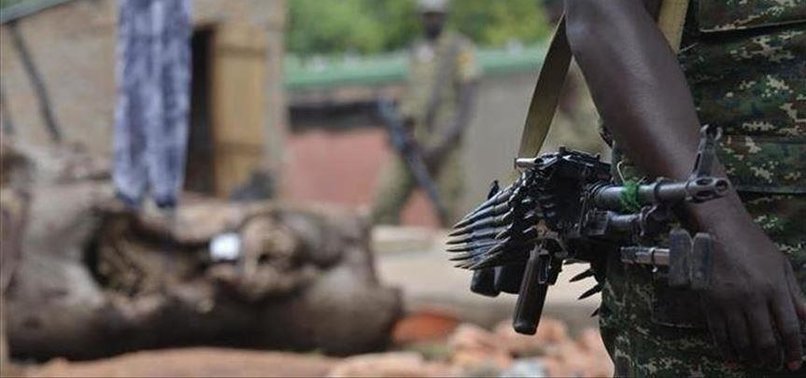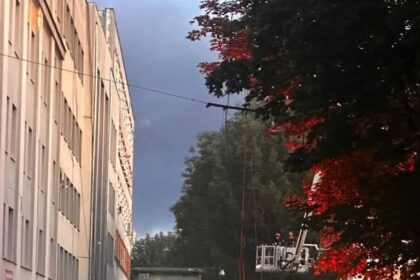By Adeyemi Adekunle
Northern Benin is reeling from a deadly jihadist attack that left 28 soldiers dead, marking one of the country’s worst military losses in recent years. The attack, which occurred on Wednesday evening near the border with Burkina Faso and Niger, underscores the growing spillover of violent insurgencies from neighboring Sahel nations into West Africa’s coastal states.
According to a high-ranking security source, cleanup operations are ongoing in the aftermath of the assault. “Forty assailants have been neutralized so far,” Lens AfricaTV gathered. Findings revealed that attackers as militants linked to extremist groups operating in the wider Sahel region, where both Islamic State (IS) and al-Qaeda-affiliated factions have gained a foothold.
The assault reportedly targeted one of Benin’s most heavily fortified military positions in the northern department of Alibori, a border region that has increasingly become a hotbed of insurgent activity. In a statement, Colonel Faizou Gomina, Chief of Staff of Benin’s National Guard, admitted the military suffered “heavy losses” but refrained from specifying the number of casualties or the exact location of the attack.
“We’ve been dealt a very hard blow,” Gomina said, addressing military leadership. “The position attacked yesterday was one of the strongest and most militarized. Wake up, officers and section chiefs. We have battles to win.” His stern words signal growing frustration at the challenges faced by the country’s armed forces in combating the insurgent threat.
The opposition party, The Democrats, painted an even grimmer picture of the attack. In a statement, the party estimated that around 30 soldiers had been killed, calling the incident a tragic escalation in the country’s fight against jihadist groups.
The rising death toll and reports of the army’s struggle to fend off militants have fueled concerns about Benin’s capacity to protect its citizens and territory. “This is not an isolated event but a stark warning about the growing security vacuum in West Africa,” said a regional analyst.
This latest attack is part of a disturbing trend of violence spreading from the Sahel region into the coastal countries of West Africa, including Benin and its neighbor, Togo. Both nations have experienced a surge in jihadist activity in recent years, as extremist groups expand their operations beyond landlocked countries such as Burkina Faso, Niger, and Mali.
Northern Benin has become particularly vulnerable due to its porous borders with Burkina Faso and Niger, two nations struggling under the weight of entrenched insurgencies. These groups exploit weak security infrastructure and deepening social grievances, using smuggling routes to fund their operations.
In 2022, Benin experienced a spate of violent incidents, prompting its government to bolster military positions in the northern regions. However, Wednesday’s assault reveals that even well-fortified installations remain at risk, raising questions about the effectiveness of current defense strategies.
Colonel Gomina’s call for improved leadership and tactics within Benin’s armed forces highlights broader challenges facing military operations in the region. Analysts argue that tackling the insurgency requires more than robust military hardware; it also demands strategic acumen, coordination among neighboring states, and community-level engagement to counter extremist narratives.
In his address, Gomina urged section chiefs and commanders to rise to the occasion, acknowledging the need for swift reforms. “Leadership will make the difference in this war,” he emphasized, a statement many saw as a veiled acknowledgment of operational shortcomings within the ranks.
The human toll of the ongoing insurgency in Benin is deeply concerning. In addition to military casualties, communities in Alibori and other northern regions are grappling with displacement, economic hardships, and a growing sense of insecurity. Fear has gripped villages near the border, with families fleeing their homes to avoid becoming collateral victims of the escalating violence.
“We feel abandoned,” said one local resident from a village near the attack site. “There is no guarantee of protection, and we are caught in the crossfire between the military and these jihadists.”
Over one million people have been displaced across West Africa due to violence linked to jihadist groups, according to the United Nations. The attacks further strain fragile state resources, complicating efforts to provide humanitarian aid and restore stability.
Benin’s security challenges are not isolated but part of a regional crisis affecting the entire Gulf of Guinea. Neighboring Togo has faced similar jihadist incursions, while other coastal countries, such as Ghana and Ivory Coast, are closely monitoring the situation to prevent a spillover.
Regional cooperation has been strengthened in recent months, with initiatives like the Accra Initiative aiming to coordinate responses among affected nations. However, the lack of a unified and adequately funded strategy continues to hinder progress.
Experts caution that without international support, the coastal states might find themselves overwhelmed. “This is no longer just a Sahel problem; it is a West Africa problem,” warned one regional security expert.
Wednesday’s attack has brought the precarious security situation in Benin and the broader region into sharp focus. As the government grapples with the fallout, pressure is mounting for decisive action to protect its northern territories and restore confidence in its ability to tackle the growing jihadist menace.
For now, the people of northern Benin can only hope that the nation’s leadership and international partners will prioritize long-term solutions to address this complex crisis. Until then, the military and civilians alike remain on the frontlines of a battle that has already claimed far too many lives.




